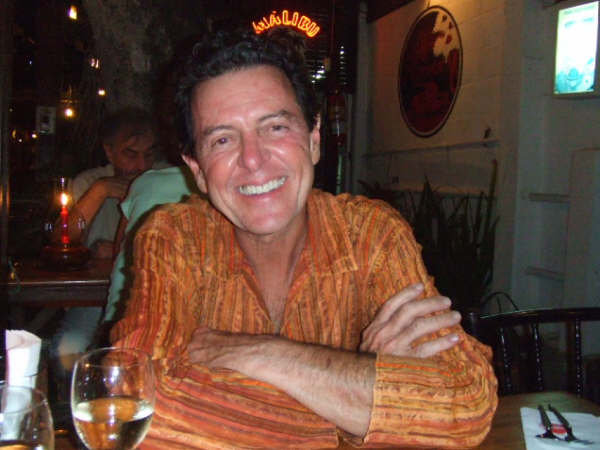Final thoughts on leaving Cambodia
There are many things in this country of hard and searing heat that I find frustrating, puzzling and simply drive me to desperation.
Please hear me out because what I?m going to say is simply my opinion and you may have figured it out already, in which case forgive me for wasting your time.
The Kingdom of Cambodia relies on international donors for 60% of its annual funding and Japan is in first line with over $110 million. However, vast corruption slows down or stops the arrival of more funds. $70 million every year goes on administration fees; is this just legal paperwork or could it possibly be donations to high-ranking officials and generals?
This enormous amount of money could double the salaries of very poorly paid workers. Even the Council Of Ministers recognises that corruption reduces the state budget by around $200 million every year. High-ranking politicians sell natural resources to foreigners (woods, building sites, public works, petrol, land). 15 casinos are scattered around the nation’s borders and after entry to ASEAN in 2000 import duties are slowly being removed, making Cambodia’s goods less and less attractive.
Corruption, bad infrastructure, lax implementation of the law, expensive electricity and telephone charges are also slowing down the nation’s development. In Jan 2005 quotas ensuring garment exports to the US and EU stop. Cambodia is in direct competition with more efficient manufacturers and there are already rumours that factories are relocating to China. There is a very large market opening up to Cambodia but what has the country got to sell?
The education system is my biggest worry, many schools have and are being built through international donors, but teachers are still very badly paid, standards are still low particularly for the poor who cannot pay for private classes, where teachers are really teaching. The teachers have no interest in improving the state system, as they have to rely on their private lessons to survive. 40% of the country’s population is made up of young people under the age of 14 and these kids are the future of the country. Around 17% of the population in the capital remains illiterate, and in the provinces this figure rises to 60%.
According to a study by the World Bank, in April 2004 around 43% of the population lives below the poverty line earning less than a dollar a day and this figure is predicted to rise to 45% in 2005.
Recently I have become very close to a wonderful Cambodian man who says he is lucky to be alive after seeing so many family members and friends die around him. ”I was forced to work 15 hours a day with very little food. I was working with my feet deep in water cutting jute, my skin was very damaged and full of sores, my toes are still bad today. Out of 100 workers in my group, only 12 of us survived. The others died of starvation or hard labour.”
It is possible to sense the guilt that he still feels when he talks about those days. That guilt is common in survivors of horrific tragedies, but Cambodia has never really addressed this issue and the country remains somehow in a kind of collective trauma.
Walking along St 178, I have often wondered why artists are painting so many pictures of the same thing: Angkor, nice sceneries, beautiful girls – no invention, only simple bland sameness and certainly nothing depicting the realities of what has happened here in the recent past. The guilt of those who survived, the fact that many members of their families and friends went missing, and that the circumstances of their disappearance stay unclear meaning that it all remains un-presentable outside Toul Sleng Museum.
Amongst all this collective numbness, copying the most obvious beauty serves to cover up those horrible thoughts.
With the hope of giving a better world to their children, people make a constant effort to delete the horror by painting idyllic scenes, portraying Buddhist stories, and thinking only about the short-term future. This on its own is ok; however, I do not think the past can simply be forgotten. Is it healthy to erase a legacy which influences the future at so many levels and in so many ways?
Is today’s pattern of violence, sudden anger, resentment, self-interest, cruelty, self-centred behaviour, and strong lack of trust not a legacy of a trauma that hasn’t been dealt with?
Could we possibly link this to a difficult word in Khmer -responsibilities?
Is this the legacy of this country because the responsibility for what has happened has not recognised and has certainly not been discussed in public.
Is this also the legacy of the elected and non-elected officials, who direct the state at any given time, and make and enforce laws?
Many young people who have come after and have no direct connection to what happened can sense those horrific memories in their elders and like me cannot fully understand, but by being exposed to them everyday can display a different behaviour; they construct this attitude: I’m Cambodian, therefore I’m a victim.
In the very near future, the economy of the Region will depend more and more on a qualified workforce than on manual labourers. By not developing the education system, not recognising the past, not accepting responsibilities and not investing in the future for political reasons, politicians are selling out their citizens along with the natural resources.
I am leaving the country of the hard sun very soon and I am not any closer to understanding.



Lightweight tourists such as yourself can never ” understand ” as you can’t slum it & live with the poor , or the rich .You are a money puppet to be scamed then pissed off .
Does every country have an obligation to “develop”. Personally, I am looking for the undeveloped, will never develop places. Places that are reliably more or less the same. Frankly, that’s the appeal of Cambodia. It’s never going to be a Singapore. The best they can do is Vietnam Jr. if they increase the population by about 1000%. There are some places that are fine the way they are and Cambodia is one of them.